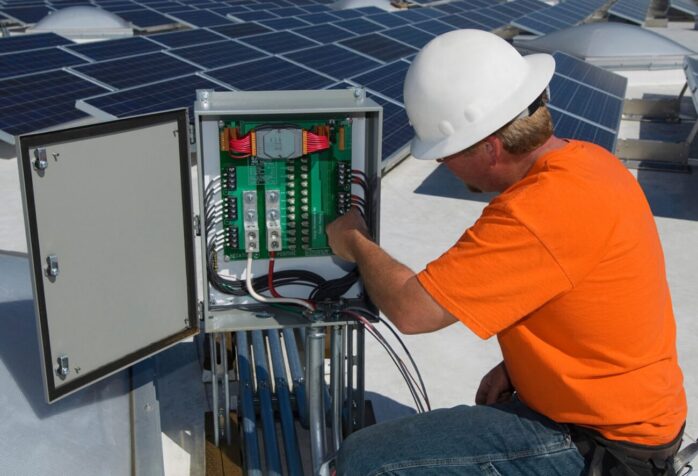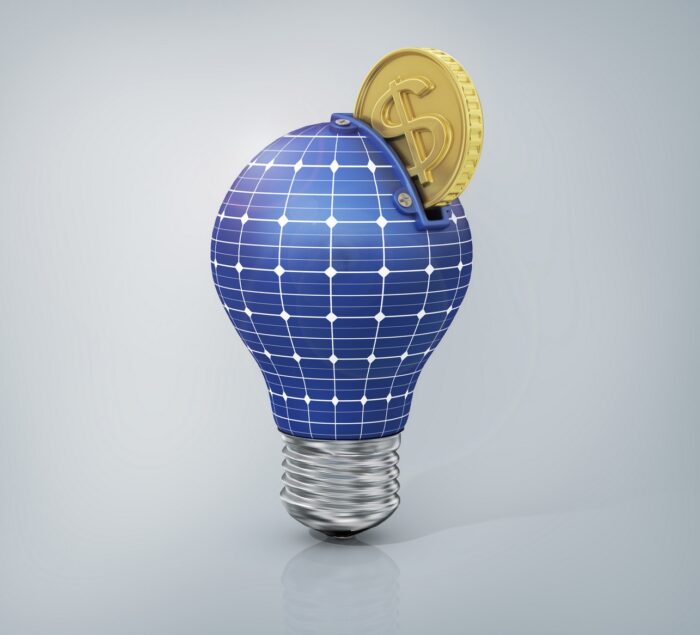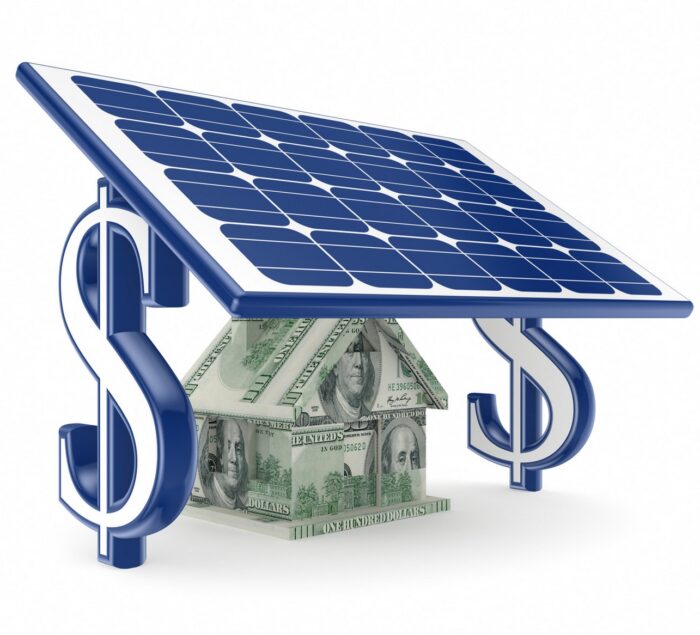
Solar panels are everywhere in homes, businesses, schools, and museums. There’s a good reason for that.
Many consumers consider investing in solar panels to reduce their monthly energy bills. With so many people interested in it, more clarity about the providers, prepaid, and installment still needs to be clarified. They need clarification about their solar energy price ranges.
Let’s analyze everything you need to know about its cost today. Read on!
Cost-Savings for Installing Solar Power
The cost-savings of installing solar power can span from modest to substantial. It depends on the type of solar energy system used and the size of the system. It also depends on the energy requirements of the property and the area’s availability of solar resources.

Types of Solar Energy Systems Used
Solar photovoltaic (PV) systems range from around $3.50 per watt for small residential systems to about $2.50 for larger commercial-scale systems. Solar thermal systems use the sun’s heat to power heating, cooling, and hot water systems. They also vary in price depending on the method that you choose.
Small-scale residential systems are around $1,500. Mid-size systems can range up to $25,000.
Large-scale commercial installations are more expensive. It may require lengthy leases or Power Purchase Agreements (PPAs). Solar energy is a long-term investment, but it is an investment that is continuing to pay off in energy cost savings. It can improve home value over the years.
Size of the System
For homeowners looking to install a small system to power their homes, the cost starts at around $8,000. For commercial-scale systems, the cost can range from $15,000 to $200,000.
Larger, commercial-scale systems can use solar panels, a battery array, and inverters. It is used to store, convert, and distribute power. With investments in home energy technology falling over the past decade, it is becoming affordable.
Most homeowners may also qualify for incentives and tax credits that can reduce the overall solar cost range. Its energy savings can offset initial expenses, making solar energy a potentially-lucrative investment.

Energy Requirements of the Property
Property owners generate solar energy by using roof-based solar panels. They are typically priced in the range of $3 per watt.
A 2 kW solar panel system could cost up to $6,000. It could meet the needs of a relatively small family home.
Area’s Availability for Solar Resources
If the energy requirements are low, the energy price range will likely be lower. The solar energy price range will likely be higher if the property requires a higher energy level. In addition, the size of the property, such as the square footage of the house or building, can also affect the price range.
If the areas requiring solar energy are large, the solar energy price range will be higher to cover the more significant needs of the property. Finally, the age and condition of the property could also affect the solar energy price range.
For instance, newer homes require less energy than older homes due to their age and condition. Therefore, a unique property’s solar energy price range would likely be much lower. It is essential to consider all the factors and weigh them against the budget to decide how much a system costs in a particular area.

Comparing Solar Power Prices with Other Energy Sources
When comparing solar power prices with other energy sources, the price range is lower than other energy sources. It is due to the decreased need for expensive new infrastructure for solar energy compared to other sources, for example, natural gas, coal, or nuclear power.
It requires less in the way of development and operation costs, leading to accessible and affordable access. The average price for a solar installation, including all taxes and fees, averages between $3 and $5 per watt.
The price may be even lower depending on the incentives offered by your state, local or utility company. Get solar energy that is often dropping to around $2 per watt for larger projects. Solar energy costs continue to drop, helping incentivize more people to switch to clean, renewable energy sources.
Weighing Benefits to Calculate Your Savings
Weighing the benefits is the best way to calculate your savings regarding solar energy. Commonly noted benefits of solar energy include lower energy bills, reduced dependence on fossil fuels, and improved home value. Investing in savings over time can be a cost-effective and viable option for home and business owners.
By considering the pros and cons of solar energy systems, you can decide if saving money on your utilities makes financial sense. Prices for solar energy systems vary depending on your home’s size, complexity, and location. By analyzing your home’s energy consumption and then factoring in your area’s solar energy cost, you can better understand what range of solar energy prices you will be up against.
Calculating your savings from investing in it is a great way to help you decide whether to invest in the technology. With proper research, you can decide if tuning into the sun’s energy is right for you and what kind of monetary return you can expect.

Know the Solar Energy Price to Craft a Smart Solution
The typical solar energy price range can vary depending on system size, technology, and supplier factors. It is a great way to become energy independent and reduce energy costs. If you’re interested in learning more about solar energy and the potential savings it can bring, try contacting a local solar panel installer today!
If you find this helpful and want to read more great content, check out our other articles now!











